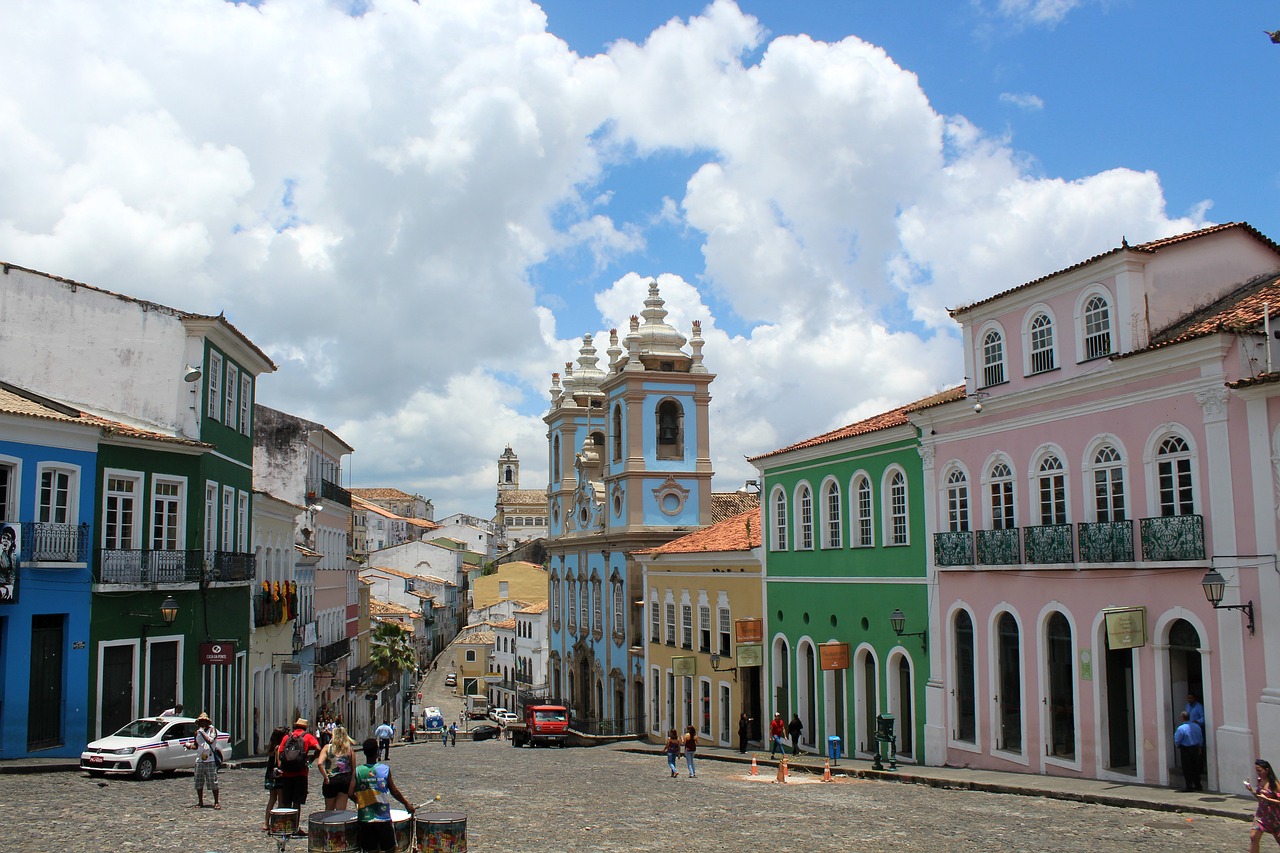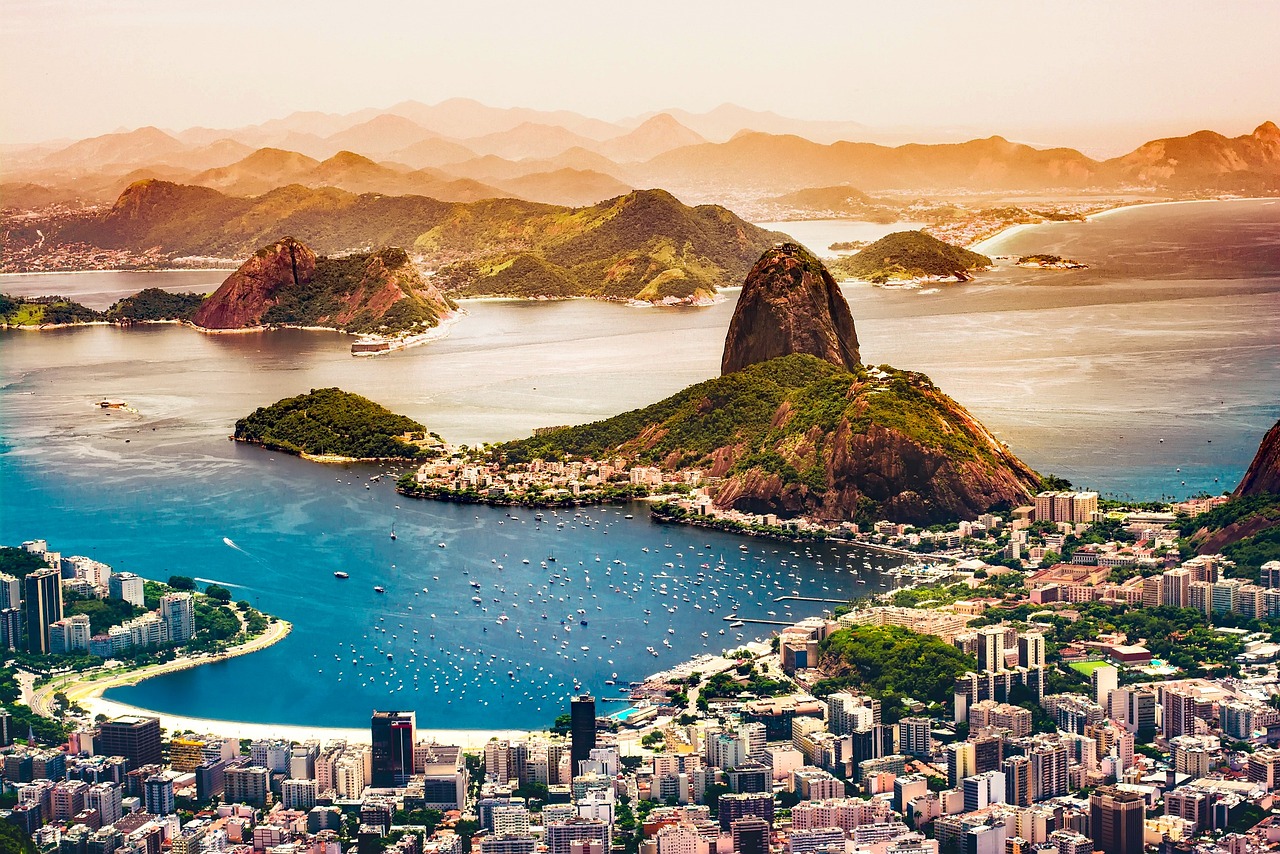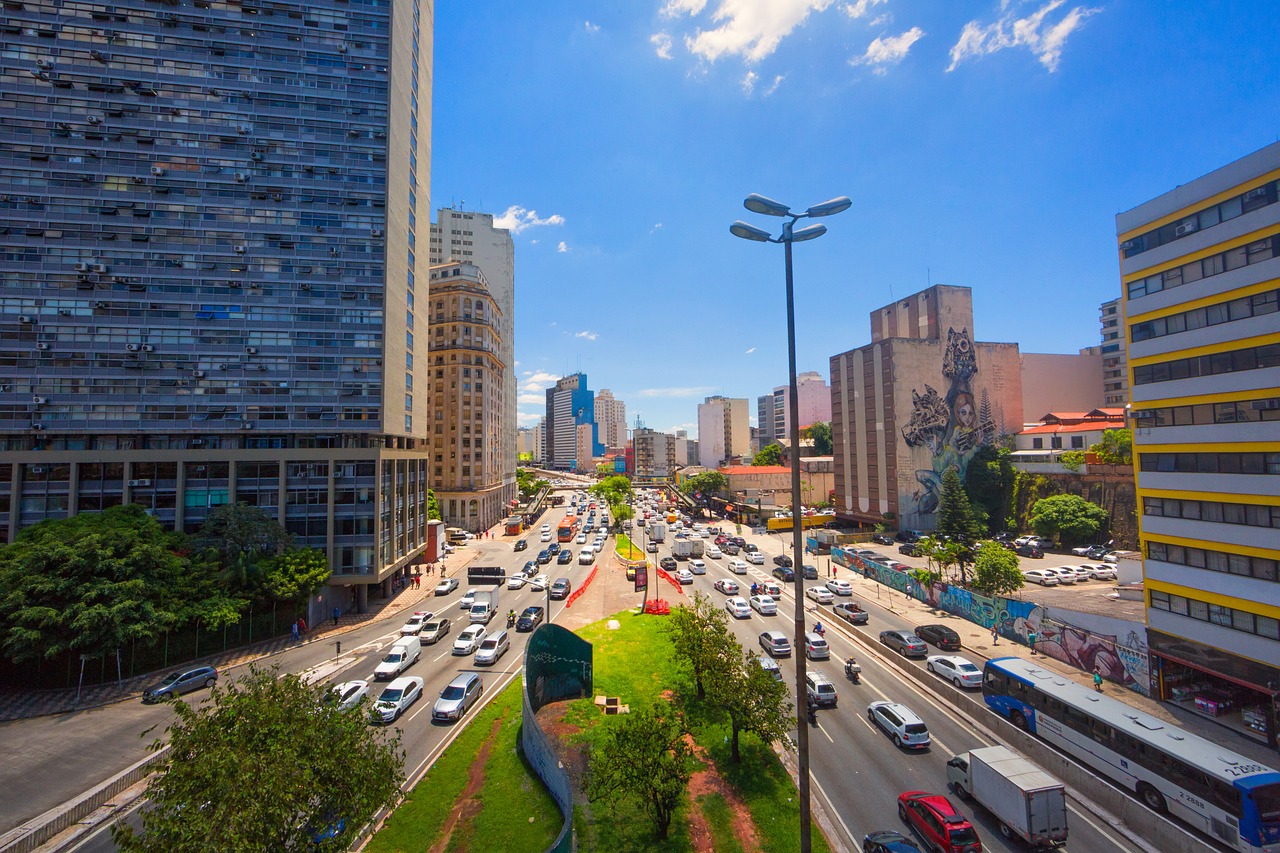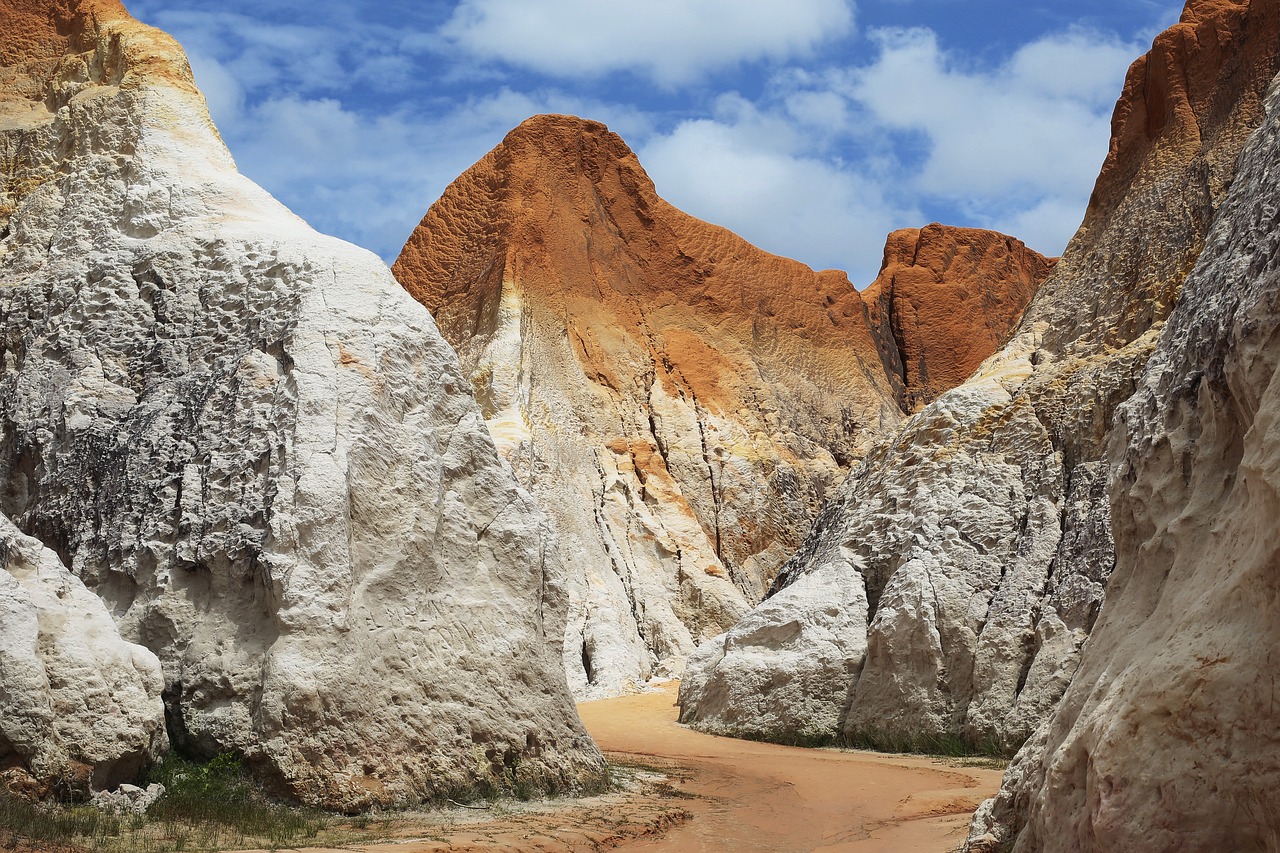Salvador is a city located in the northeastern region of Brazil, in the state of Bahia. It is the fourth largest city in the country and is known for its rich Afro-Brazilian culture, colorful architecture, and stunning beaches.
Short History
Salvador is a city located on the Atlantic coast of the Bay of All Saints. It was founded by the Portuguese in 1549 and served as the colonial capital of Brazil until 1763. Salvador was a major center for the slave trade and became a melting pot of African, European, and indigenous cultures. Today, it is known for its vibrant music and dance scene, historic architecture, and rich Afro-Brazilian culture.
Architecture
Salvador, also known as Salvador da Bahia, has a rich and diverse architectural history, reflecting its past as the first capital of Brazil. The city is characterized by a fusion of Portuguese colonial and African cultural influences, resulting in a unique blend of styles. The historic center of Salvador, known as Pelourinho, is a UNESCO World Heritage site, and it features some of the best examples of colonial architecture in Brazil, including colorful buildings with ornate facades and intricate stonework. Other notable architectural styles represented in Salvador include baroque, neoclassical, art nouveau, and modernist. The city also has many examples of religious architecture, such as the Catedral Basilica de Salvador and the Igreja do Nosso Senhor do Bonfim, both of which are important pilgrimage sites.
Museums and Galleries
Salvador is known for its rich culture and history, which is reflected in its museums and galleries. Some of the most interesting ones to visit are:
- Afro-Brazilian Museum: Dedicated to the African-Brazilian cultural heritage of the region.
- Museum of Modern Art of Bahia: Showcasing contemporary art pieces from both Brazilian and international artists.
- Museum of Sacred Art of Bahia: Featuring a vast collection of religious art from the 17th to the 19th centuries.
- Museum of the City of Salvador: An exhibition of the city’s history, including the colonial period and the African slave trade.
- Solar do Unhão: An art museum with works by famous Brazilian artists such as Carybé and Portinari, located in an old sugar mill.
- Jorge Amado Museum House: A museum dedicated to the life and work of the famous Brazilian writer, Jorge Amado.
- Mario Cravo Museum: Displaying the works of one of Salvador’s most famous sculptors, Mario Cravo.
- Museum of Archaeology and Ethnology: Exhibiting artifacts from pre-Columbian times and the indigenous peoples of the region.
These museums and galleries offer a fascinating insight into Salvador’s history, culture, and art, making them well worth a visit.
Landmarks and Monuments
Salvador is known for its rich cultural heritage and historical landmarks. Here are some of the most interesting landmarks and monuments in Salvador:
- Pelourinho – A historic neighborhood that features colorful colonial buildings, churches, and museums.
- Elevador Lacerda – A famous elevator that connects the lower and upper parts of the city. It was built in the late 19th century and offers panoramic views of the Bay of All Saints.
- Mercado Modelo – A bustling marketplace located in the lower part of the city. It sells a wide range of souvenirs, handicrafts, and local delicacies.
- São Francisco Church and Convent – A magnificent Baroque-style church that is known for its elaborate decoration, including gold leaf and wood carvings.
- Farol da Barra – A lighthouse located at the entrance to the Bay of All Saints. It was built in the 17th century and is one of the city’s most iconic landmarks.
- Dique do Tororó – A man-made lake that is home to several statues of orixás, or Afro-Brazilian deities.
- Castro Alves Theatre – A historic theater that hosts a variety of cultural events, including music and dance performances.
- Bonfim Church – A popular pilgrimage site that is known for its colorful façade and religious significance.
- Solar do Unhão – A historic mansion that has been converted into a cultural center. It houses a museum of modern art and offers stunning views of the Bay of All Saints.
- Forte de Santo Antônio da Barra – A 16th-century fort that now houses a nautical museum. It is located at the entrance to the Bay of All Saints and is a popular spot for watching the sunset.
Parks and Green Spaces
Salvador offers visitors a variety of parks and green spaces to explore. Here are some of the most interesting ones:
- Parque da Cidade – A large park located in the center of Salvador, offering hiking trails, a lake, and an amphitheater for events.
- Dique do Tororó – A popular park located around a large artificial lake, with sculptures of orixás (African deities) and a nice view of the city skyline.
- Jardim de Alah – A beachfront park with palm trees, a jogging trail, and a bike path, offering stunning views of the Atlantic Ocean.
- Parque das Dunas – A nature reserve with sand dunes, hiking trails, and freshwater lagoons, located on the outskirts of the city.
- Praça da Sé – A historic square in the city center, surrounded by colonial buildings and churches, with a statue of Zumbi dos Palmares, a Brazilian freedom fighter and symbol of Afro-Brazilian resistance.
- Horto Florestal – A botanical garden located on the outskirts of the city, with a wide variety of tropical plants and trees.
- Parque Metropolitano de Pituaçu – A large park with hiking trails, a lake, and a stadium, located in the suburbs of Salvador.
These parks and green spaces offer a break from the hustle and bustle of the city, and a chance to connect with nature and enjoy the local culture.
Shopping Districts
Salvador is a vibrant and bustling city with plenty of shopping opportunities. From street markets to modern malls, there is something for everyone. Here are some of the top shopping districts in Salvador:
- Mercado Modelo – This historic marketplace offers a wide range of traditional handicrafts, clothing, and souvenirs.
- Shopping Barra – One of the largest shopping malls in Salvador, Shopping Barra has a mix of local and international brands.
- Shopping Iguatemi – Another large mall with over 300 stores, including high-end fashion and electronics.
- Feira de São Joaquim – One of the biggest open-air markets in Brazil, Feira de São Joaquim offers a wide range of goods, from fresh produce to clothing.
- Pelourinho – This historic district is home to many artisanal shops selling handmade jewelry, clothing, and art.
- Ladeira da Barra – This street is lined with boutiques selling clothing, accessories, and handmade crafts.
Whether you’re looking for traditional handicrafts or high-end fashion, Salvador has something to offer every shopper.
Food and Drink
Salvador has a diverse and vibrant culinary scene influenced by African, European, and indigenous cultures. Here are some popular foods and drinks to try in Salvador:
- Acarajé: A popular street food made of black-eyed peas formed into balls and deep-fried, then filled with spicy shrimp and pepper sauce.
- Moqueca: A traditional Bahian seafood stew made with coconut milk, peppers, onions, and herbs.
- Vatapá: A creamy and spicy paste made with bread, shrimp, peanuts, and coconut milk, often served with rice or acarajé.
- Caipirinha: Brazil’s national cocktail made with cachaca (a sugarcane-based spirit), lime, sugar, and ice.
- Acai: A refreshing and nutritious berry from the Amazon region, often served as a smoothie or topped with granola and fruit.
- Churrasco: A type of Brazilian barbecue, typically featuring various cuts of beef, pork, and chicken.
- Cuscuz: A savory dish made with couscous, vegetables, and meat or seafood.
- Cocada: A sweet coconut candy, often found at street markets and festivals.
- Guarana: A popular Brazilian soft drink made from the guarana fruit, which contains caffeine and is believed to have energy-boosting properties.
- Feijoada: Brazil’s national dish, a hearty stew made with black beans, pork, sausage, and other meats.
Transportation
Salvador has several modes of transportation, including buses, taxis, and Uber. Buses are the most common mode of transportation in Salvador, and they connect all parts of the city. They are affordable and frequent, but they can be crowded during peak hours. Taxis are also available and can be found throughout the city. They are more expensive than buses but offer a more comfortable and private ride. Uber is also available in Salvador, and it is a convenient and affordable way to move around the city, especially for tourists who are not familiar with the city’s transportation system. Another popular way to move around Salvador is by walking, especially in the historic center, where many attractions are located. However, it is important to be cautious and aware of your surroundings, especially at night.
City Safety
Salvador, like any city, has its share of safety concerns. It is important for visitors to take precautions and be aware of their surroundings, especially when traveling to unfamiliar areas. Petty theft and pickpocketing are the most common crimes in Salvador, particularly in tourist areas, so it’s important to keep an eye on your belongings at all times. It’s also recommended to avoid walking alone at night in deserted areas and to use registered taxis or ride-sharing services to get around the city. Overall, Salvador is a relatively safe city if you exercise common sense and take necessary precautions.
Expensive or Cheap
Salvador is considered a moderately affordable city in Brazil, although prices can vary depending on the location and the type of establishment. While some areas can be quite expensive, such as the touristy Pelourinho district, other neighborhoods offer more affordable options. On average, the cost of living in Salvador is lower than in major Brazilian cities such as Rio de Janeiro and São Paulo.
Date Ideas
Salvador, with its rich culture and history, offers a variety of romantic date ideas for couples, and is a great destination for romantic getaways. Some romantic date ideas in Salvador include taking a sunset walk on the beach, exploring the city’s historic district, visiting a local art museum or gallery, taking a boat tour of the bay, or attending a live music performance. Couples can also indulge in delicious Bahian cuisine at a local restaurant or take a cooking class together to learn how to make traditional dishes. Additionally, Salvador has several rooftop bars and restaurants with breathtaking views that are perfect for a romantic evening out. Here are some ideas explained in more detail:
- Watch the sunset at Farol da Barra – The lighthouse provides a stunning view of the sunset over the Atlantic Ocean.
- Take a romantic walk in the historic Pelourinho district – This vibrant area is full of colorful buildings, street performers, and live music.
- Enjoy a sunset dinner cruise on Todos os Santos Bay – Take in the beautiful views of the bay while enjoying delicious food and drinks.
- Visit the Mercado Modelo – This historic marketplace is a great place to find unique souvenirs and try some of Salvador’s traditional cuisine.
- Explore the natural beauty of Praia do Forte – This picturesque beach town is just an hour’s drive from Salvador and offers crystal clear waters and a relaxed atmosphere perfect for a day trip.
Fun and Interesting Facts
Salvador, also known as Salvador da Bahia, is a beautiful city located in northeastern Brazil. Here are some fun and interesting facts about Salvador:
- Salvador is the capital of the state of Bahia, and it was the first capital of Brazil.
- The city has a rich cultural heritage that combines African, indigenous, and European influences.
- Salvador is famous for its Carnaval celebration, which is one of the largest in the world.
- The historic center of Salvador, known as Pelourinho, is a UNESCO World Heritage Site and is home to beautiful colonial architecture.
- The city is known for its delicious cuisine, which features seafood, spices, and African influences.
In conclusion, Salvador is a vibrant and culturally rich city with a fascinating history and beautiful architecture. Its unique blend of African, indigenous, and European influences make it a must-visit destination for travelers to Brazil.



